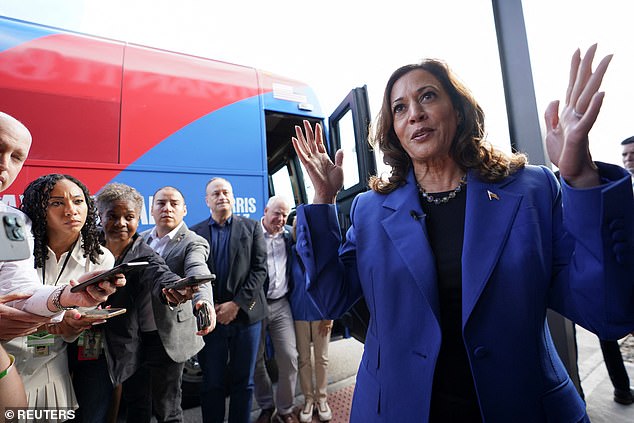Kamala Harris claims her economic policy will “pay for itself”… over time, if you take a long-term view of “return on investment.”
The vice president gave a confusing response when asked how she would pay for the agenda outlined in North Carolina on Friday.
Harris announced $6,000 payments for newborns and expanded child tax credits, $25,000 down payments for some first-time homebuyers, medical debt relief and other measures for her first 100 days in office.
The Committee for a Responsible Federal Budget said the new policies would increase the budget deficit by $1.7 trillion.
Harris’ campaign said any additional costs above the 2025 Biden-Harris budget would be offset by higher taxes on corporations and high-income individuals.
Vice President Kamala Harris gave a confusing and convoluted response when asked how she would fund her economic policies at a news conference in Moon Township, Pennsylvania.
But instead of simply saying that, Harris rambled for a full minute about the future tax revenue that would hypothetically be generated by a healthier, better-educated population.
“The return on investment in terms of what will be accomplished and what will be paid back will be tremendous,” he said at a news conference in Moon Township, Pennsylvania, on Sunday.
“We saw that when we did it in the first year of our administration: we reduced child poverty by over 50 percent, so that’s a big part of the work.”
Harris said expanded tax credits would also produce a “huge return on investment,” without explaining how, and then took an even longer-term view.
“When we increase homeownership in America, what that means in terms of increasing the property tax base, what that does to fund schools and, again, return on investment,” he continued.
Harris appeared to argue that it was a “mistake” to think only about short-term costs and not the long-term effects, but she was unclear in her response.
“I think it’s a mistake for anyone who talks about public policy not to critically evaluate how return on investment is measured,” he said.
The vice president argued that strengthening community economies and “investing in a broad-based economy” would be
“Everyone benefits and it pays off,” he concluded.
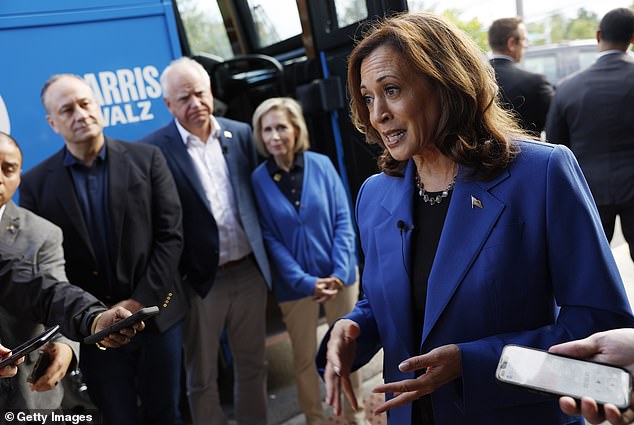
Harris rambled for a full minute on the future tax revenue that would hypothetically be generated by a healthier, better-educated population.
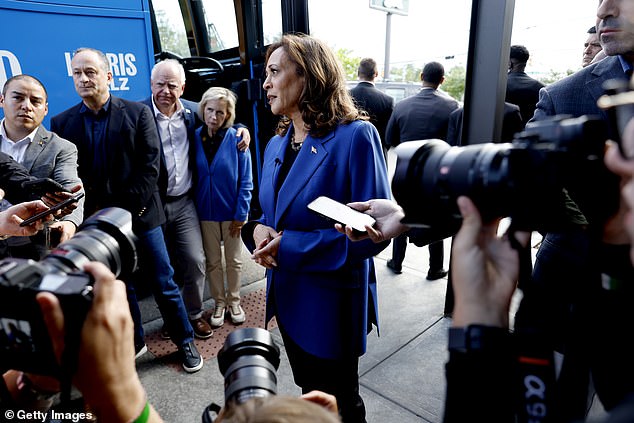
The press only had about three minutes to speak with Harris after she stepped off the campaign bus with running mate Tim Walz and moved on to a question about the latest polls.
The press had only about three minutes to speak with Harris after she stepped off the campaign bus with her running mate, Minnesota Gov. Tim Walz, and so it segued into a question about the latest polls.
Harris and her entourage then moved to Primanti Bros restaurant and bar to meet with voters, listen to their concerns and ask for their support.
The press has had very little time to question the vice president about her plans and vision for the country since she replaced President Joe Biden as the Democratic nominee on July 21.
Harris claimed during her Friday speech that her proposals would provide relief to millions of families while also reducing the federal deficit, but she did not go into specifics about how that would be paid for.
“Think about what that means: It’s a vital, critical developmental year for a child,” Harris said of the new child tax credit in its first year.
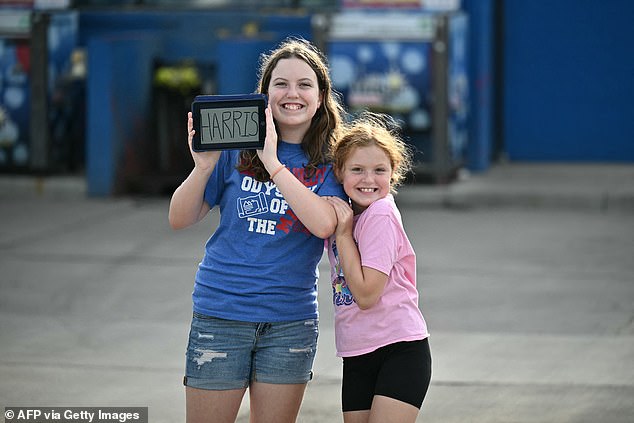
Two girls hold a tablet reading “Harris” as U.S. Vice President and Democratic presidential candidate Kamala Harris makes a bus stop at Primanti Bros restaurant and bar in Moon Township, Pennsylvania.
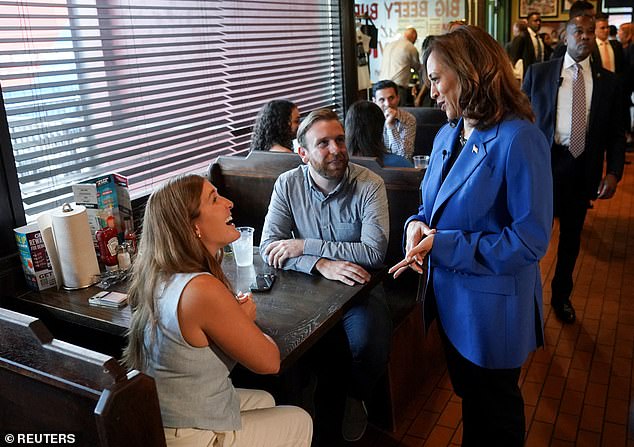
Harris and her entourage then moved to Primanti Bros restaurant and bar to meet with voters, listen to their concerns and ask for their support.
On housing, the vice president called for three million new units during her first four years in office, one million more than President Biden requested.
He also wants to offer incentives to companies to build first-time homes and is urging Congress to pass laws that would prevent big companies from buying and raising rents.
Harris also called for $25,000 down payments for some first-time homebuyers, an expansion of a Biden administration proposal to help first-generation homebuyers.
On prescription drug prices, the vice president called for expanding the cap on out-of-pocket costs for prescription drugs by $2,000, not just for seniors but for everyone.
He also called for speeding up negotiations on Medicare prescription drug prices and for greater transparency in the industry.
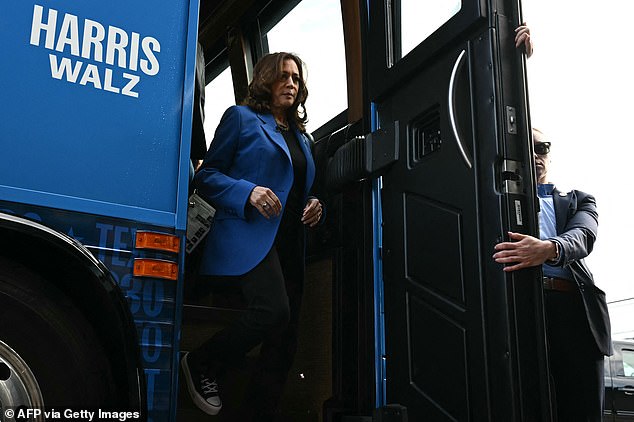
Harris gets off the bus during her tour of the key state of Pennsylvania
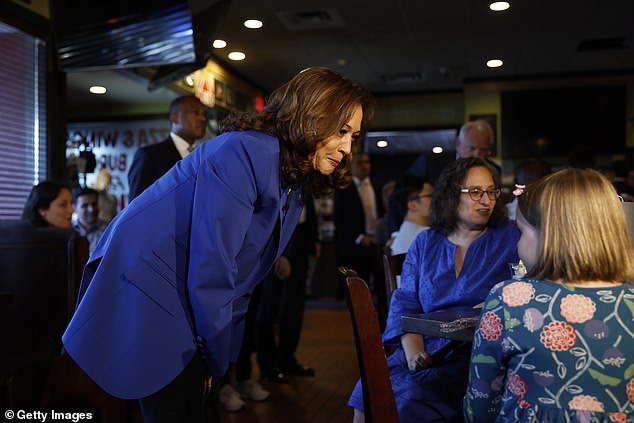
Democratic presidential candidate U.S. Vice President Kamala Harris speaks with a young girl at Primanati Bros restaurant in Moon Township, Pennsylvania.
Earlier this week, the vice president’s campaign unveiled Harris’ plan to ban price gouging at the federal level.
It is a controversial policy that has been rejected by some economists who warned that such policies would not reduce food costs.
Economist Jason Furman, who served in the Obama administration, told the Washington Post that this could mean “greater shortages, reduced supply and, ultimately, the risk of higher prices and worse outcomes for consumers” if implemented in practice.
During her remarks, Harris said food prices remain too high. She said that as president she would “go after bad actors” and claimed that competition is “the lifeblood of our economy.”
Friday’s speech marked the first time the vice president outlined her own administration priorities and differentiated herself from the president since Biden’s exit from the presidential race.
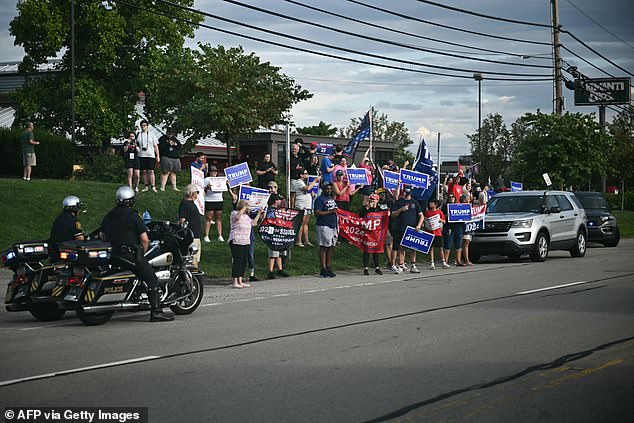
A small group of Donald Trump supporters stage a mini-rally outside Harris’ event on Sunday.

